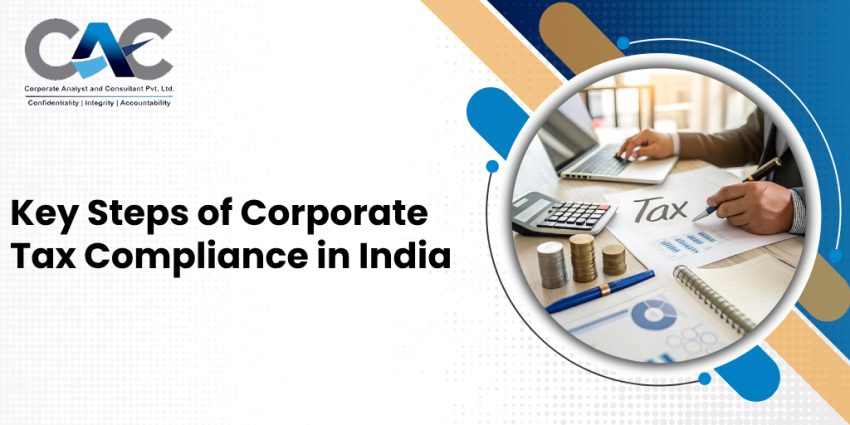Compliance with tax law is one of the topmost concerns of businesses in the modern business environment. To corporations, which are in operation in India, the tax law compliance does not solely mean paying the appropriate amount of tax but also entails transparency, accuracy, and legal integrity in financial reporting. This is where the issue of corporate tax compliances occurs.
What is Corporate Tax Compliance?
Corporate tax compliance is a procedure undertaken to follow the regulations of income tax, file returns within the stipulated dates, pay advance taxes, keep proper records and disclose financial information correctly as per the Indian tax regulations. It means that businesses pay their fair share to the national income without legal problems and punishment.
Corporate tax is imposed on both local and international companies in India on the profits that the companies make in India. Under the Income Tax Act, 1961, specific provisions have been put down regarding how to determine the taxable income, deductions applicable and tax rates.
Key Components of Corporate Tax Compliances in India
- Filing of Income Tax Returns (ITR) – The annual filing by companies is a requirement where they report the income, expenditure and taxes due.
- Payment of Advance Tax – Companies having tax liability of more than Rs 10,000 are required to pay advance tax in quarterly payments.
- Tax Deducted at Source (TDS) – Corporations are obligated to deduct tax at source on the specified payments such as salaries, contractor fees and rent and remit it to the government.
- Transfer Pricing Regulations – Multinationals are subject to the regulations that require them to operate their dealings with related parties at arm length pricing.
- Maintenance of Records – Companies are expected to have comprehensive books of accounts, invoices and other supporting documents in the event of tax assessments and audits.
Importance of Corporate Tax Compliances
Following proper corporate tax compliances is not only a legal necessity but also a reflection of ethical business practices. Some of the benefits include:
- Avoiding Penalties – Failure to do it may result in huge fines, payment of interests, or even prosecution.
- Building Business Credibility – Open tax practices improve the reputation of a company among investors, lenders and company stakeholders.
- Smooth Business Operations – When compliance is done properly, chances of conflicts with your tax authorities are minimized and the business runs smoothly.
- Contribution to Nation-Building – The funds of the government come as taxes and are utilized in infrastructure and development endeavors.
Example for Better Understanding
Take the example of a firm that has a profit of 10 crore per annum. It is required to compute its corporate tax liability at the rate that should be paid and pay installment taxes, deduct TDS on employee salaries and submit annual returns. Any neglect in any of these steps may attract review and punishments, and this is why it is important that corporate tax compliances are taken seriously.
Conclusion
In the case of business in India, corporate tax compliances are one of the most vital financial management elements that need to be comprehended and observed. It does not only provide the security of the law but promotes confidence and goodwill within the market. With tax regulations constantly changing as digital filing systems and increased enforcement take place, businesses will need to keep up with these changes and embrace best practices to keep up. By ensuring that corporate taxes are given priority, the businesses can aim at sustainable growth as well as positively contributing to the growth of the country.

















